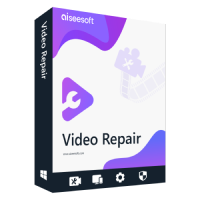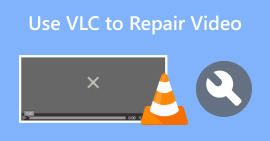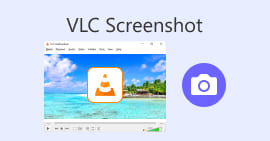5 Solutions for VLC Media Player Not Playing Video
When you don't know what player to use, you can't go wrong with VLC Media Player. After all, who doesn't like such a free and open-source platform with wide compatibility?
But no one can guarantee to be perfect all the time, and the same goes for VLC Media Player. Many users have already reported that they have encountered problems with videos not playing. And the related solutions are endless. In this article, we will discuss and summarize the existing feasible VLC Media Player not playing video. A total of 5 solutions will be introduced to you. Without further ado, let's see how to do it.

Part 1. How to Fix VLC Not Playing Video
Convert the Video to Other Compatible Formats
Why is VLC Media Player not playing video? It may be because the video format is not compatible.
Yes, we agree that VLC Media Player is the most widely compatible multimedia player in existence. But even as comprehensive as it is, it's hard to guarantee compatibility with all existing video formats. You can start by finding the video that can't be played on your device and then confirming its format by looking at its properties. If the file's format, or video codec, is not supported by VLC Media Player, please convert it to a more popular video format, such as MP4.
We suggest trying some professional third-party video format converters, such as FVC Video Converter Ultimate. It currently supports up to 1000+ formats, and it has hardware-accelerated technology. You can batch convert video files with 3X faster efficiency.
Please note that the safest output format is MP4 H.264. This format and codec is compatible with almost any device or player.
Free DownloadFor Windows 7 or laterSecure Download
Free DownloadFor MacOS 10.7 or laterSecure Download
Here is how to convert video format to MP4 H.264 with FVC Video Converter Ultimate.
Step 1. Download and install FVC Video Converter Ultimate on your computer. After going to the main interface, choose the Converter tab. Click Add Files to upload your video.
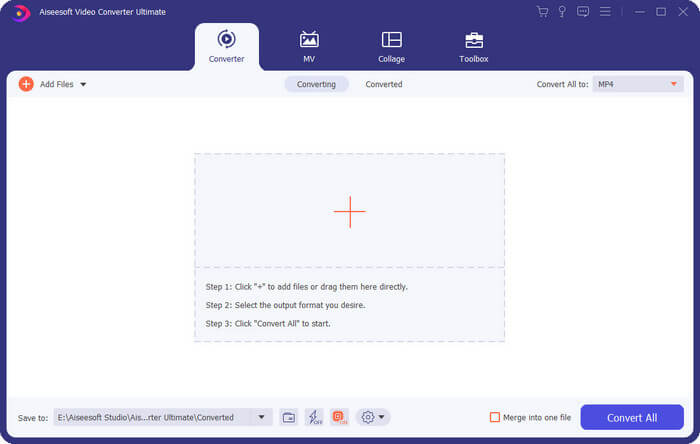
Step 2. Drop down the format list under Convert All to. Here, choose Video > MP4. Select the option with H.264 as the video codec.
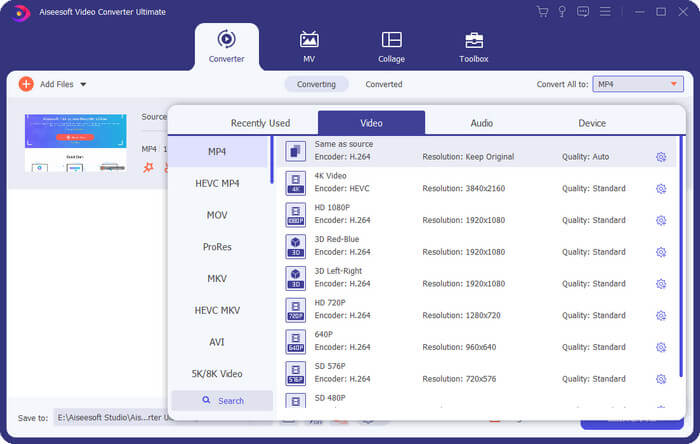
Step 3. After finishing the settings, click Convert All.
Update VLC to the Latest Version
Video not playing in VLC Media Player? Maybe it's because your software isn't up to date.
VLC Media Player is still in a steady state of maintenance and updating. The developers are also constantly broadening the codecs or video formats VLC supports. If you are still using an older version, you may face the problem of not being able to play video files encoded with newer codecs.
Therefore, you need to update your VLC Media Player on time, and doing so may help you fix some minor bugs. However, some of your customizations may not be preserved after the update. You may also need to adjust them manually.
Here is how to update your VLC Media Player to the latest version.
Step 1. Open your VLC Media Player.
Step 2. Click the Help button and choose Check for Updates.
If a notification alerts you that a new version is available, follow the on-screen instructions to complete the download and installation.

Reinstall VLC Media Player
VLC Media Player video not working? If you find that it's still not available after restarting it many times, uninstall the existing version and download a new one.
Redownloading VLC Media Player can help you solve a lot of problems and restore the program to its perfect initial state. Please note that if you have previously installed additional plug-ins or codecs to VLC Media Player, you may need to add them again manually after this reinstallation.Reinstallation is not complicated. All you need to do is to find VLC Media Player on your system. Right-click on it and select Uninstall. After the uninstallation is complete, go to the official website and download the latest version.
Turn Off Hardware Acceleration
Turning off hardware acceleration may also help with the VLC not playing video issue.
Sometimes, in order to ensure smooth and high-quality video playback, VLC Media Player enables hardware acceleration. This feature will take full advantage of your device's processor or graphics card. But this may also lead to compatibility issues. This problem may be especially noticeable if your computer has older drivers.
Here is how to turn off hardware acceleration on your VLC Media Player.
Step 1. Open your VLC Media Player, and click Tools > Preferences.
Step 2. Switch to the Input/Codecs tab. Expand the menu next to Hardware-accelerated decoding.
Step 3. Choose Disable. Finally, click Save to keep the change.
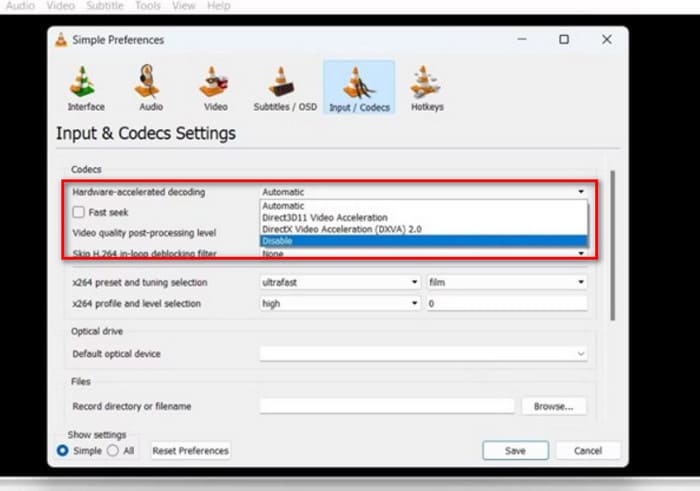
Use VLC Player Alternative
If you have tried all these options and found that the VLC Media Player not playing video still exists, then we don't recommend you continue wasting your time on tweaking this player. You can try some alternatives to VLC Media Player. Their performance and compatibility may be better for your needs.
Among the players of the same type, we recommend Aiseesoft Blu-ray Player. This software can play HD video files, audio files, Blu-ray discs, DVDs, Blu-ray folders, DVD folders, ISO files, and so on. It supports 1080p and even 4K picture quality. Whether your video is equipped with DTS-HD Master Audio or Dolby TrueHD sound, Aiseesoft Blu-ray Player can restore it 100%.
Free DownloadFor Windows 7 or laterSecure Download
Free DownloadFor MacOS 10.7 or laterSecure Download
Here is how to play your video with Aiseesoft Blu-ray Player.
Step 1. Download and install Aiseesoft Blu-ray Player on your device.
Step 2. After opening the main interface, click Open File and select your video.
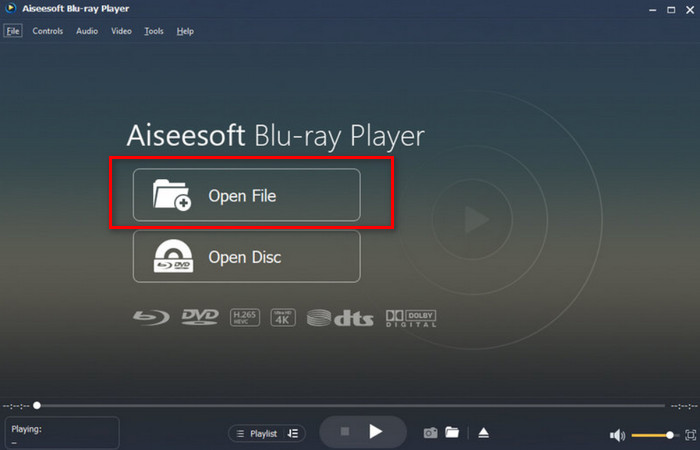
Step 3. Your video will be loaded. Click the Play icon, then, you can enjoy your watching.
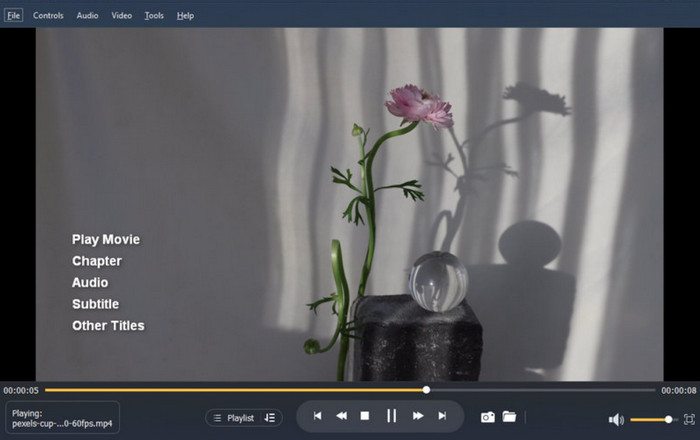
Part 2. FAQs of VLC Media Player Not Playing Video
How to fix VLC Media Player not playing YouTube videos?
It may be because your VLC Media Player version is too low, causing it to be incompatible with the latest YouTube video formats. You need to update it in time. Also, check if your player has hardware acceleration enabled. If yes, please turn it off in time.
Why is there no audio when VLC plays a video?
First, check to see if the volume is on. Then consider whether the current audio codec is incompatible, if so, please convert the audio format in time. Another possibility is that the audio file has been corrupted. You need to find audio and video repair tools to deal with it.
Can VLC play any file?
Although VLC Media Player is known for its compatibility, that doesn't mean it supports all formats. There are some extremely rare or proprietary formats that it cannot open. It is recommended that you keep the player up to date.
Conclusion
The VLC Media Player not playing video problem occurs more often still. Usually, we think that the cause can be format or codec incompatibility, the player is not up-to-date, hardware acceleration is turned on, etc. In this article, we have compiled 5 reliable solutions for you, including two of the best audio and video processing tools for desktops. We hope you can solve all the problems successfully with our help.



 Video Converter Ultimate
Video Converter Ultimate Screen Recorder
Screen Recorder